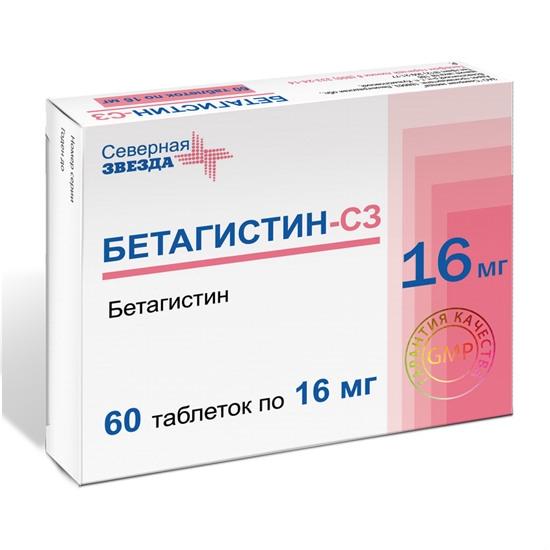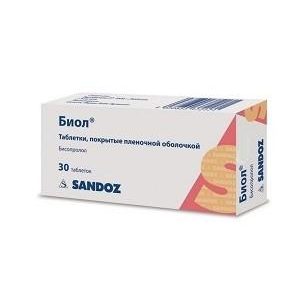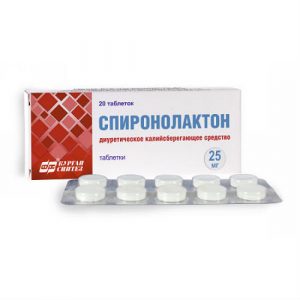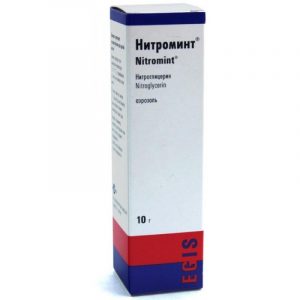Description
Latin name
Detralex
packaging 60 pcs
Pharmacological action
Pharmacotherapeutic group: histamine preparation.
ATX Code: [N07CA01].
Pharmacodynamics:
Betagistin acts primarily on the histamine H1 and H3 receptors of the inner ear and vestibular central nervous system nuclei. By direct agonistic action on the H1 receptors of the vessels of the inner ear, and also indirectly through exposure to H3 receptors it improves microcirculation and capillary permeability, normalizes endolymph pressure in the labyrinth and cochlea. However, betahistine increases blood flow in the basilar artery. It has a pronounced central effect, being an inhibitor of the H3 receptors of the nuclei of the vestibular nerve. It improves the conductivity in the neurons of the vestibular nuclei at the level of the brain stem. A clinical manifestation of these properties is a decrease in the frequency and intensity of dizziness, a decrease in tinnitus, and hearing improvement if it decreases.
Pharmacokinetics:
Absorbed rapidly, binding to plasma proteins is low. The maximum concentration in plasma after 3 hours. The elimination half-life in 3-4 hours. It is almost completely excreted by the kidneys in the form of a metabolite (2-peridylacetic acid) within 24 hours.
Indications
treatment and prevention of vestibular dizziness of various etiologies
syndromes, including dizziness and headache, tinnitus, progressive hearing loss, nausea, vomiting
disease and Meniere’s syndrome.
Contraindications
– hypersensitivity to any of the components of the drug, children under 18 years of age (due to lack of data), pregnancy and lactation (due to lack of data)
Caution: peptic ulcer or duodenal ulcer (in including a history), pheochromocytoma, bronchial asthma. These patients should be regularly observed during treatment – pregnancy and lactation. There is not enough data to assess the effects of the drug during pregnancy and lactation. In this regard, it is not recommended to take during pregnancy. At the time of treatment, it is necessary to stop breastfeeding.
Use during pregnancy and lactation
Insufficient data to evaluate the effects of the drug during pregnancy and lactation. In this regard, pregnancy is contraindicated. At the time of treatment, it is necessary to stop breastfeeding.
Composition
The active substance is betahistine dihydrochloride.
Excipients: microcrystalline cellulose lactose (milk sugar) citric acid silicon dioxide colloidal dioxide (aerosil) talc magnesium sodium stearate starch lauryl sulfate 1500 (pregelatinized starch).
Description: 16 mg tablets – white or almost white in color, flat-cylindrical in shape, with chamfer and risk.
Dosage and Administration
Inside, with meals. 1 / 2-1 tablets 3 times / day.
Improvement is usually noted already at the beginning of therapy. A stable therapeutic effect occurs after two weeks of treatment and can increase over several months of treatment. The treatment is long. The duration of the drug is selected individually.
Side effects
Gastrointestinal disorders, allergic reactions from the skin (skin rash, itching, urticaria), Quincke edema.
Drug Interaction
Cases of interaction or incompatibility with other medicines are unknown.
Overdose
Symptoms: nausea, vomiting, convulsions. Treatment: gastric lavage, activated carbon intake, symptomatic therapy.
Storage conditions
List B. In a dry, dark place at a temperature of no higher than 25 ° C. Keep out of the reach of children.
Expiration
5 years. Do not use after the expiry date.
Deystvuyuschee betahistine substance
dosage form well
Dosage form
tablets
Northern Star, Russia




